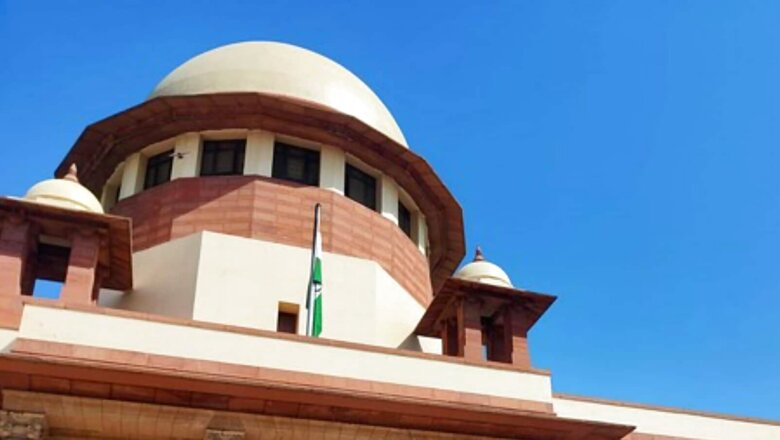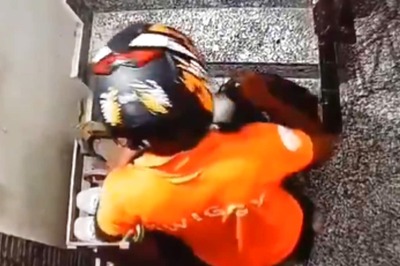
views
The Supreme Court on Friday constituted a committee to look into records relating to 108 people, who went missing during the 1992-93 riots in Mumbai, and said the Maharashtra government shall make all possible efforts to trace their family members or legal heirs.
The apex court observed that violence witnessed by Mumbai in December 1992 and January 1993 adversely affected the right of the residents of the affected areas to lead a “dignified and meaningful life” and if citizens are forced to live in an atmosphere of communal tension, it affects their right to life guaranteed by Article 21 of the Constitution.
A bench headed by Justice S K Kaul said the state shall pay compensation of Rs 2 lakh to the legal heirs of the missing persons, traced out hereafter, with interest at the rate of 9 per cent per annum from January 22, 1999 till actual payment.
“The committee consisting of the Secretary of MSLSA (Maharashtra State Legal Services Authority) and the other two government officers appointed under this order, shall monitor the efforts of the state government to trace other victims who were entitled to compensation in terms of the annexure to the first government resolution but compensation was not paid to them,” said the bench, also comprising justices A S Oka and Vikram Nath.
It noted there was a failure on the part of the state government to maintain law and order and to protect the rights of people guaranteed under Article 21.
The apex court delivered its verdict on a plea which sought directions, including to the state to accept and act on the findings of Sri Krishna Commission of Enquiry, and also for payment of compensation to people identified as missing.
It noted that in December 1992 and January 1993, there were about 900 deaths, 168 people were reported missing and about 2,036 people suffered injuries in the violence and thereafter, as a result of serial bomb blasts of March 12, 1993, there were 257 deaths and 1,400 people were injured.
The bench said a March 2020 affidavit filed before it by the principal secretary of Home department notes that 900 people died in riots and 168 people were reported missing and compensation was paid to the legal heirs of these deceased and family members of 60 missing people.
It noted that though belatedly, by a government resolution of July 8, 1993, a decision was taken to give financial assistance to people affected due to riots in December 1992 and January 1993 as well as due to serial bomb blasts in Mumbai.
It said a government resolution dated July 22, 1998 was issued, providing for giving compensation of Rs 2 lakh to the legal heirs of the missing persons and the eligibility criteria and procedure for disbursement were also laid down.
The apex court said family members of only 60 missing people have been paid compensation, adding compensation was not paid to the kin of the remaining 108 missing people as they or their residential addresses were not found.
“We propose to constitute a committee headed by the member secretary of the Maharashtra State Legal Services Authority, to look into the records relating to the remaining 108 missing persons,” the bench said in its 38-page verdict.
Dealing with issue raised regarding action against erring police officials, it noted that in terms of the recommendations of the commission, FIRs were lodged against nine policemen and later, two of them were discharged while seven were acquitted.
It said the state government has not stated the reasons for not questioning the orders of acquittal.
“The State should have been vigilant and proactive in these cases. Now it is too late in the day to direct the State to examine whether the orders of acquittal deserve to be challenged,” the bench noted.
On the issue of disciplinary inquiry initiated against various police officials, it said in view of long passage of time, it will be inappropriate to go into the question of the validity of orders passed by disciplinary authorities and adequacy of penalties imposed.
“In any case, in a writ petition in the nature of a public interest litigation, a writ court should not normally interfere with disciplinary proceedings,” the bench said.
The apex court said the affidavit discloses the details of the fate of 253 riot-related criminal cases and it also discloses that one case is pending in the sessions court.
“We propose to direct the sessions court to dispose of the pending case at the earliest. Ninety seven cases are on dormant files. The reason must be that either the accused therein are not traceable or are absconding,” it said.
The bench said the high court, on administrative side, must issue appropriate directions to the courts concerned in which these cases are pending.
It said high court must ensure that the concerned courts take appropriate steps for tracing the accused and the state will have to set up a special cell for tracing them.
The bench said the commission had made several suggestions for reinforcing and improving police force and the recommendations were very wide.
It noted that memorandum of the government records that most of these recommendations have been accepted by the state.
“But what remains is the implementation part. The state government cannot ignore the recommendations made by the commission for the improvement and modernisation of the police force and the recommendations shall continue to guide the state government,” it said.
The bench said the state shall expeditiously implement all the recommendations made by the commission on the issue of reforms in police force which were accepted by it.
Read all the Latest India News here




















Comments
0 comment